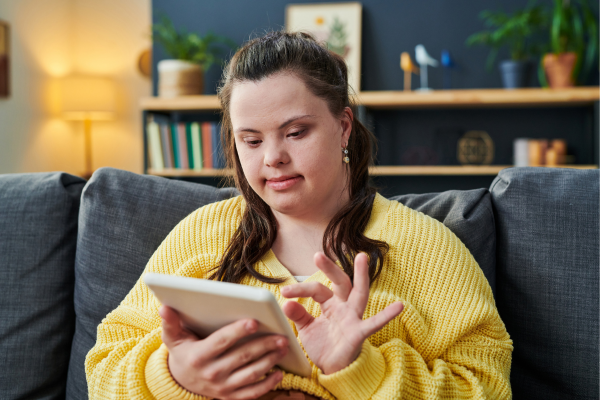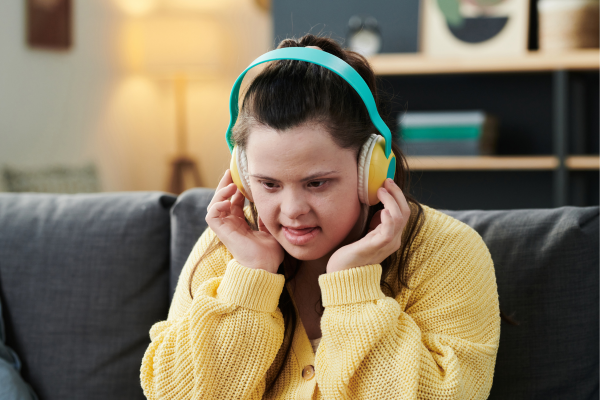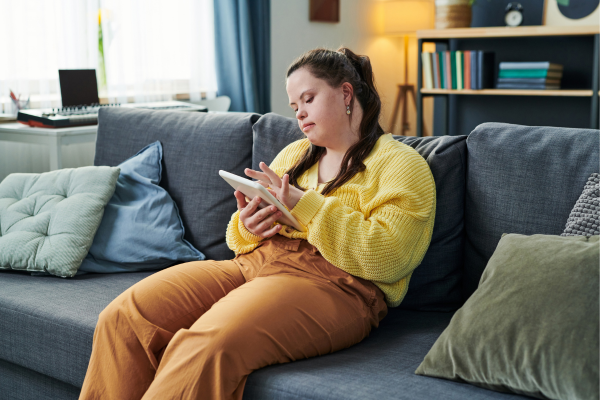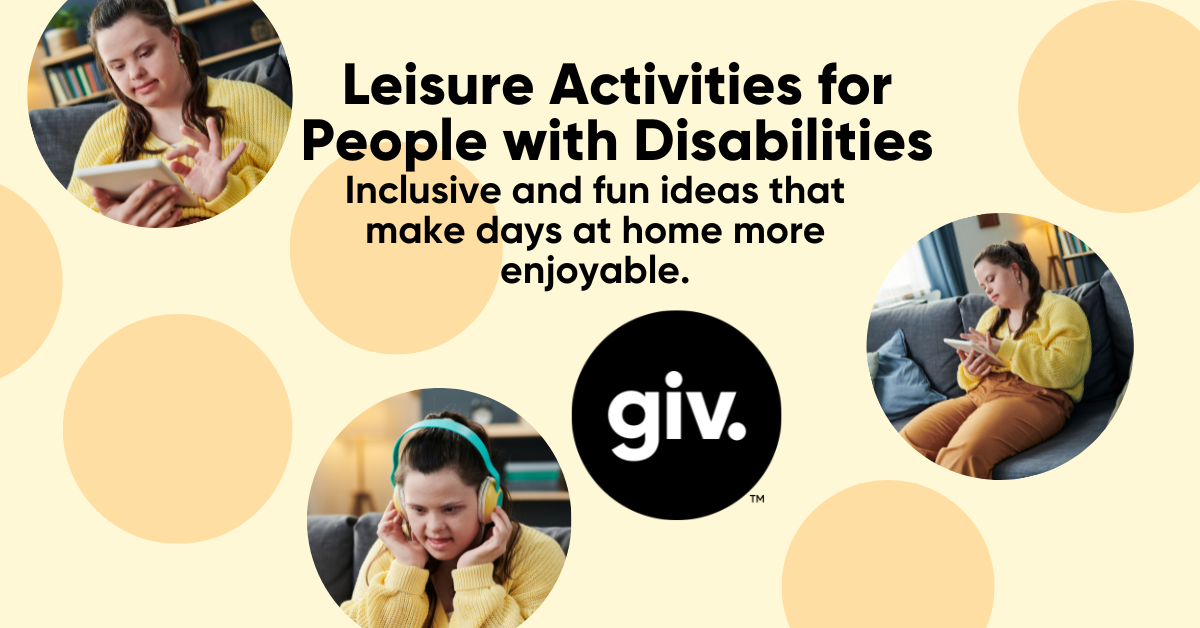In the realm of accessibility and inclusivity, “Leisure Activities for People with Disabilities” play a pivotal role in promoting joy, engagement, and a sense of belonging. Embracing a diverse range of recreational pursuits tailored to accommodate individuals with disabilities ensures that everyone can partake in fulfilling and enjoyable experiences. From adaptive sports and creative arts to virtual explorations and mindful relaxation, these leisure activities empower individuals to thrive and celebrate their unique abilities without limitations.
Inclusive Outdoor Recreation: Accessible Adventures for All Abilities
Venturing outdoors is a wonderful way for individuals with disabilities to connect with nature and experience the beauty of the world around them. Parks, nature reserves, and trails are increasingly becoming more accessible, providing a welcoming environment for people of all abilities. Wheelchair-accessible paths, sensory gardens, and adapted playgrounds offer opportunities for recreation and relaxation.
One fantastic outdoor activity is adaptive hiking, where specially designed equipment such as all-terrain wheelchairs or hiking poles with stabilizers enable individuals with mobility challenges to explore scenic trails. Additionally, accessible camping sites with wheelchair-friendly facilities allow people to immerse themselves in the joy of camping without barriers.

Creative Pursuits: Artistic and Crafty Leisure Activities for People with Disabilities
The realm of art and crafts provides a boundless space for self-expression and creativity, regardless of physical ability. Engaging in artistic pursuits not only allows individuals to tap into their inner creativity but also helps them express emotions and thoughts in unique ways.
Painting and drawing workshops tailored to accommodate various abilities create a supportive environment where participants can explore different mediums and techniques. For those with limited dexterity, adaptive tools like brushes with extended handles or textured grips can make artistic endeavors more accessible.
Craft activities, such as pottery or sculpture, also offer an excellent opportunity for tactile experiences, making them especially enjoyable for individuals with visual impairments. Moreover, inclusive art classes promote social interaction and foster a sense of community among participants.
Virtual Fun: Exploring the World from Home through Online Leisure Activities
In an increasingly digital world, virtual leisure activities have opened up exciting possibilities for people with disabilities to explore the globe from the comfort of their homes. Virtual tours and experiences provide accessible alternatives to physically visiting museums, landmarks, and historical sites.
Through virtual reality (VR) technology, individuals can embark on immersive journeys, delving into the wonders of ancient civilizations or exploring marine life in the depths of the ocean. Online platforms also offer interactive workshops, such as cooking classes, music lessons, and language courses, enabling people to acquire new skills and indulge in various hobbies.
Furthermore, virtual gaming platforms have been developed with accessibility in mind, offering adaptive controllers and customizable settings for players with diverse needs. These games not only entertain but also provide opportunities for socialization and friendly competition with others.

Engaging the Mind and Body: Adaptive Leisure Activities for People with Disabilities
Physical activity is essential for maintaining a healthy lifestyle, and adaptive sports have emerged as a fantastic avenue for individuals with disabilities to stay active and engaged. From wheelchair basketball and adaptive cycling to seated volleyball and para swimming, there is an array of sports catered to specific needs and abilities.
Participating in adaptive sports not only improves physical fitness but also enhances confidence, teamwork, and a sense of achievement. These activities also provide a platform for aspiring athletes to pursue professional sports and even compete at national and international levels.
Mindful Wellness: Meditation and Relaxation for People with Disabilities
In the hustle and bustle of everyday life, taking time for mindfulness and relaxation is crucial for overall well-being. Meditation and relaxation techniques can be adapted to accommodate individuals with disabilities, offering a path to reduce stress, anxiety, and promote inner peace.
Guided meditation sessions, available through audio recordings or video platforms, cater to various abilities and needs. They focus on breathwork, visualization, and body awareness, allowing participants to find moments of tranquility and rejuvenation. Additionally, practices like chair yoga and gentle stretching exercises provide a gentle way to improve flexibility and maintain physical health.
Music and Rhythm: Inclusive Musical Expression
Music has a universal language that transcends barriers, making it a powerful medium for self-expression and emotional release. Individuals with disabilities can explore music in numerous ways, whether through learning to play musical instruments adapted to their needs or participating in inclusive choirs and bands.
Accessible instruments like adapted keyboards, percussion, and wind instruments allow people with limited mobility or dexterity to engage in musical activities with ease. Inclusive choirs welcome individuals of all vocal abilities, creating harmonious and vibrant performances that celebrate diversity and unity through song.

Gardening for All: Cultivating Green Spaces for Enjoyment
Gardening offers therapeutic benefits for people with disabilities, fostering a connection with nature and promoting a sense of accomplishment. Accessible gardening spaces equipped with raised beds, vertical planters, and adaptive tools make it easier for individuals with physical challenges to nurture plants and cultivate beautiful green spaces.
Participating in gardening not only brings the joy of watching plants grow but also enables individuals to harvest their produce, fostering a greater appreciation for the environment and sustainable living. Moreover, gardening can be a social activity, bringing people together in community gardens to share knowledge, experiences, and the fruits of their labor.
Gaming and Technology: Inclusive Digital Entertainment
Digital technology has revolutionized leisure activities, and gaming is no exception. Video games designed with inclusivity in mind offer a wide range of options to cater to various abilities and preferences.
Inclusive gaming controllers, such as those with adaptive buttons or motion-sensing capabilities, enable individuals with disabilities to play video games comfortably. Furthermore, game developers have been focusing on creating accessible settings and interfaces to ensure a seamless gaming experience for all players.
Conclusion:
Embracing leisure activities for people with disabilities is not just about inclusion; it’s about recognizing the uniqueness and potential within each individual. By providing accessible opportunities for recreation, society can foster an environment where people of all abilities can thrive and experience the joy of leisure pursuits. Whether through outdoor adventures, creative arts, virtual exploration, or adaptive sports, there’s a world of enriching experiences awaiting everyone, regardless of physical challenges. Let us continue to support and promote inclusivity in leisure activities, ensuring that everyone can lead a fulfilling and joyful life.






